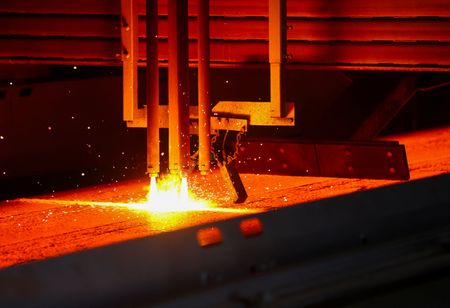LONDON (Reuters) – Britons who own shares or property can be considered “working people” too, Prime Minister Keir Starmer’s office clarified, after he suggested they wouldn’t fit his definition of the phrase ahead of a budget next week.
As the government warns it will need to take difficult decisions at the Oct.
30 budget to raise revenue, ministers have repeatedly sought to reassure voters by saying “working people” won’t be hit by tax increases.
The term is seen as an attempt to show that the burden of tax rises will fall on the wealthy.
The government has been pressed repeatedly to define the phrase in a bid to establish what taxes would go up in the budget, but neither Starmer nor finance minister Rachel Reeves has provided a clear definition.
Asked at the Commonwealth leaders’ summit in Samoa if people with property or shares were working people, Starmer told Sky News: “They wouldn’t come within my definition.”
Starmer said his definition was “the sorts of working people who go out, work hard and maybe save a bit of money but don’t have the wherewithal to write a cheque to get out of difficulties.”
Starmer’s spokeswoman later clarified, saying the prime minister did not think all owners of shares fell outside his definition of working people.
His definition would include people who “have a small amount of savings or shares,” the spokeswoman added.
Nearly a quarter of the British public have invested in the stock market, according to investment platform Hargreaves Lansdown.
Speculation about the new Labour government’s first budget has dominated headlines, with some media reports suggesting Britain will increase the rate of capital gains tax payable on shares and other assets.
(Reporting by Andrew MacAskill, editing by William James and Sachin Ravikumar)











